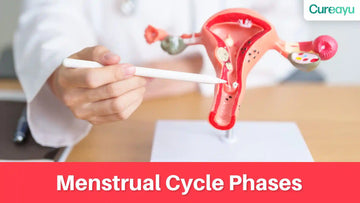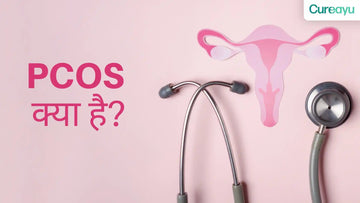Light periods, medically known as hypomenorrhea, refer to a menstrual cycle characterized by minimal bleeding. Unlike a typical menstrual flow, a light period might last fewer days, involve spotting, or consist of very low blood volume. This change in flow can be temporary or long-term, depending on various health factors. Many women experience light periods at some point, and while it can be a natural fluctuation, consistent patterns of light bleeding can be indicative of underlying health issues.
Understanding the possible causes, symptoms, and preventive strategies for light periods is essential for maintaining optimal reproductive health. This article delves into the different reasons that might contribute to a lighter-than-usual period, the symptoms to watch for, potential complications, and ways to address this condition naturally and medically.
Also Read: How Many Days Periods Last: Decoding Your Cycle
Symptoms of Light Period
1. Reduced Menstrual FlowLight periods often come with significantly reduced menstrual flow, where the blood volume is lower than usual. It may seem like mere spotting rather than a full period, with only a few drops of blood throughout the cycle.
2. Shorter Duration of Periods
A light period may last only one or two days, or even just a few hours. This is notably shorter than the average cycle, which typically ranges from three to seven days.
3. Skipped Menstrual Cycles
Women experiencing light periods may also skip cycles occasionally. This can happen due to hormonal imbalances or lifestyle factors affecting menstrual regularity.
4. Minimal or No PMS Symptoms
Light periods may come with fewer or no premenstrual symptoms, such as cramps, bloating, or mood swings. This absence of PMS symptoms may indicate hormonal changes influencing the menstrual flow.
Reasons for Less Bleeding During Period
1. Hormonal ImbalanceHormonal imbalances, particularly with estrogen and progesterone, can lead to changes in menstrual flow. Low estrogen levels reduce the uterine lining's thickness, resulting in lighter bleeding during periods.
2. Stress and Lifestyle Changes
Chronic stress can disrupt hormonal balance, leading to irregular or light periods. High-stress levels release cortisol, which can interfere with the reproductive hormones that regulate menstruation.
3. Birth Control and Other Medications
Certain contraceptives, especially hormonal birth control pills, can lead to lighter periods. They often reduce the thickness of the uterine lining, resulting in minimal blood flow.
4. Nutritional Deficiencies
Deficiencies in essential nutrients like iron, vitamin D, and B vitamins can affect menstrual health. Proper nutrition is vital for hormone production and the menstrual cycle's regularity.
5. Excessive Exercise or Weight Loss
Intense physical activity or sudden weight loss can disrupt menstrual cycles. A low body mass index (BMI) can reduce hormone production, causing lighter periods or skipped cycles.
6. Underlying Health Conditions
Certain health conditions, such as polycystic ovary syndrome (PCOS) or thyroid disorders, can impact the menstrual cycle. Both conditions can lead to irregular periods, including light menstrual flow.
Also Read: Effective Treatments for Irregular Periods: Understanding the Causes and Symptoms
Risk Factors
1. Age and MenopauseWomen approaching menopause often experience lighter periods as estrogen levels naturally decrease. Similarly, young women may have irregular or light periods during their first years of menstruation.
2. Chronic Stress
Chronic exposure to stress is a significant risk factor for light periods. High cortisol levels can inhibit reproductive hormones, leading to lighter periods over time.
3. Low Body Weight or BMI
Being underweight or having a low BMI can interfere with the body’s ability to maintain a regular menstrual cycle. Low body fat can reduce estrogen production, resulting in lighter periods.
4. Hormonal Birth Control
Women using hormonal contraceptives, such as pills, patches, or IUDs, are at a higher risk of experiencing lighter or less frequent periods.
5. History of Eating Disorders
Eating disorders like anorexia or bulimia can severely impact hormonal balance, often leading to irregular or light periods due to poor nutrition and body stress.
Complications With Less Period Flow
1. Fertility IssuesConsistently light periods may indicate hormonal imbalances that can affect fertility. Thin uterine linings can make it difficult for a fertilized egg to implant, potentially leading to conception challenges.
2. Risk of Osteoporosis
Low estrogen levels, which can result in light periods, are associated with a higher risk of osteoporosis. Estrogen is essential for bone health, and its deficiency can lead to reduced bone density over time.
3. Hormonal Imbalance Symptoms
A light period may be one of several symptoms of a broader hormonal imbalance, which can impact mood, energy levels, and overall well-being. Untreated hormonal issues can lead to further health complications.
4. Increased Risk of Amenorrhea
If light periods are left unaddressed, they may lead to amenorrhea (absence of menstruation). Amenorrhea can further disrupt hormonal balance and may require medical intervention to restore normal cycles.
Also Read: Effective Home Remedies for Period Pain
Reasons and Prevention Tips for Light Period
1. Maintain a Balanced DietEating a diet rich in essential nutrients, particularly iron, vitamin D, and B vitamins, can support menstrual health. A well-rounded diet helps maintain hormonal balance and regular menstrual cycles.
2. Manage Stress
Incorporating stress-relieving practices like meditation, yoga, and regular exercise can help balance cortisol levels, reducing the likelihood of hormonal disruptions that cause light periods.
3. Moderate Exercise Levels
While exercise is essential for health, excessive or intense physical activity can negatively impact menstruation. Balancing workouts with adequate rest can help maintain regular periods.
4. Regular Medical Check-ups
Periodic medical consultations, especially if experiencing consistent light periods, can help identify and treat any underlying conditions. Conditions like thyroid imbalances or PCOS may require specialized treatment.
5. Avoid Excessive Weight Fluctuations
Maintaining a stable weight and avoiding extreme dieting or weight changes can help regulate hormone levels, reducing the chances of light or irregular periods.
Also Read: Why Is My Period Late? Understanding the Causes and What to Do Next
Conclusion
Light periods, while common, can signal potential changes in hormonal balance or lifestyle factors that impact menstrual health. Recognizing the symptoms and understanding possible causes—such as hormonal imbalances, lifestyle habits, and underlying health issues—is essential in managing and maintaining reproductive health. For women experiencing consistent light periods, consulting with a healthcare provider to evaluate hormone levels and overall health is recommended. Preventive steps like balanced nutrition, managing stress, and regular health check-ups play a significant role in restoring a healthy menstrual cycle. With awareness and proactive care, managing a light period becomes a manageable aspect of women’s health, ensuring overall well-being and supporting future reproductive health.











